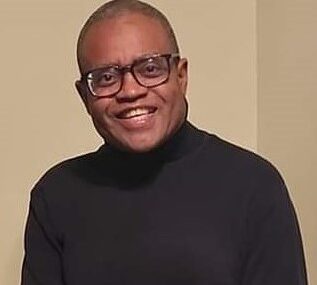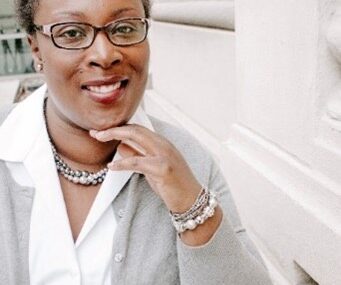
In June 2020, I wrote a Facebook post reflecting on my experiences as a Black woman in higher
education. The response to the post was overwhelming, with so many Black professionals in higher
education (and other fields) sharing that they had had similar experiences. The likes, loves, and shares
confirmed a sad truth that, deep down, I already knew—my experiences with covert and overt racism in
higher education were not unique.
My post on June 4, 2020, read:
Four years ago, last month, I left my last position in higher education. Many people could not understand
why I would leave my Associate Dean of Students and Affirmative Action Officer position. What many
around the world are experiencing because of the recent deaths of Breonna Taylor, George Floyd,
Ahmaud Arbery, and countless others is the reason I left higher education.
I started my higher education career immediately after I completed my undergraduate degree. Since that
time, I have worked to create inclusive campus environments where Black students and other students of
color could be free to learn without the burden of racism and discrimination. After over 18 years of
fighting for Black students at predominantly white universities to be allowed just to BE, my mental and
physical health and well-being deteriorated. In this fight on campuses across the United States,
departments that do this work are often underfunded and staffed with one, or at most two, professionals
charged with all things social justice on campus. We also must support Black students and students of
color because we are often the only professionals on campus who visibly advocate on their behalf. It is
NOT easy work. It is exhausting. It is frustrating. It is emotional. It is disheartening. It is all those things,
even when it is your passion.
It is fighting in meetings when your white colleagues make out-of-pocket remarks. It is always speaking
up in meetings even when your allies are present and know what their white colleague just said was out
of pocket. It is always having to speak up and having people across campus think you are a troublemaker
or an angry Black woman because you refuse to sit quietly. It is having your colleagues tell new
employees not to work with you because you are difficult. It’s also the subtle injustices, like the refusal to offer an annual bonus that has been earned, further perpetuating a sense of inequity in the workplace. It is having to facilitate dialogues around police brutality, remain neutral, and fight back tears. It is having your colleagues send an email asking that we be sensitive about the feelings of the white woman on our committee because her son and
husband are police officers. It is having those same colleagues never ask you and your Black colleague,
who are expected to facilitate those dialogues if you are okay. It is your institution saying Black Lives
Matter but having already taken a stand on whose lives matter by whose feelings they chose to consider.
These are only a few of the reasons why I left higher education. These examples are only equivalent to
one year of my time in higher education. Multiply it by 17 more years. For my friends in higher education
doing this work, I see you. I know how hard the work is, and I appreciate you. As your institutions prepare
to have virtual workshops, dialogues, and seminars about the protests, please take care of yourselves.
Do what is necessary to guard your heart, mind, and spirit.
This post originated from the intense emotions I felt that day as I contemplated the effects of racism,
social injustice, and the efforts to dismantle oppressive systems on the mental well-being of Black
individuals. The emotions I felt as I considered the additional impact of sexism on the mental health of
Black women also inspired the post. While the world was protesting institutional and systemic racism, I was reflecting on my 18-year protest against racism and sexism in higher education. I thought about the
deep anguish I began to feel and the eventual decline of my mental health.
Then, on January 8, 2024, Dr. Antoinette “Bonnie” Candia-Bailey died by suicide following reports of
harassment and bullying by university president John Moseley. At the time of her passing, Dr. Candia-
Bailey, who was 49 years old, served as vice president of student affairs at Lincoln University of Missouri,
an HBCU. Despite her 23 years of experience in higher education, she was vice president for less than a
year before her death. Dr. Candia-Bailey’s death sparked a much-needed conversation about the
negative experiences of Black women in academia and the impact on their mental health. It’s heartening
to see some institutions engaging in serious discussions and taking steps to address these concerns.
However, it’s unfortunate that these conversations and efforts for change didn’t happen before January
8, 2024. The sad irony is that Dr. Candia-Bailey’s 2016 dissertation research focused on the challenges
faced by Black women in academia.
I recently re-read Audre Lorde’s essay from the same book titled The Master’s Tools Will Never
Dismantle the Master’s House. Lorde delivered these remarks as part of a panel discussion at a
conference in 1979. The following excerpt especially resonated with me:
“Women of today are still being called upon to stretch the gap of male ignorance and educate men
about our existence and needs. This is an old and primary tool of all oppressors to keep the oppressed
occupied with the master’s concerns. Now we hear that it is the task of women of colour to educate
white women—in the face of tremendous resistance—as to our existence, our differences, and our
relative roles in our joint survival. This is a diversion of energies and a tragic repetition of racist,
patriarchal thought.”
The ongoing efforts in higher education to address these issues should prioritize equitable solutions that
do not disproportionately burden Black individuals, especially Black women. It’s crucial to ensure that
the initiatives put in place to tackle these challenges are fair and inclusive, taking into account the
unique obstacles faced by members of the Black community.



